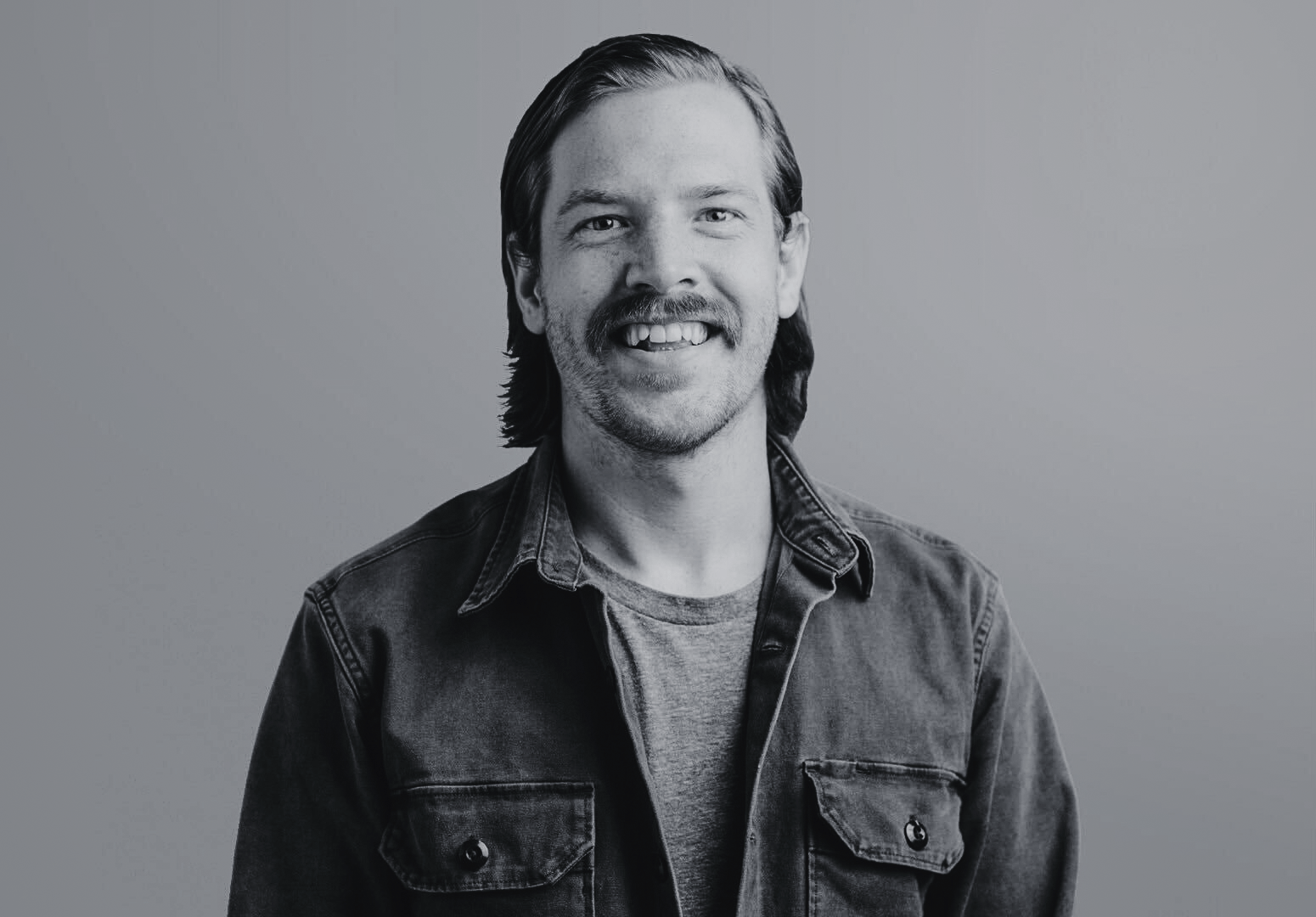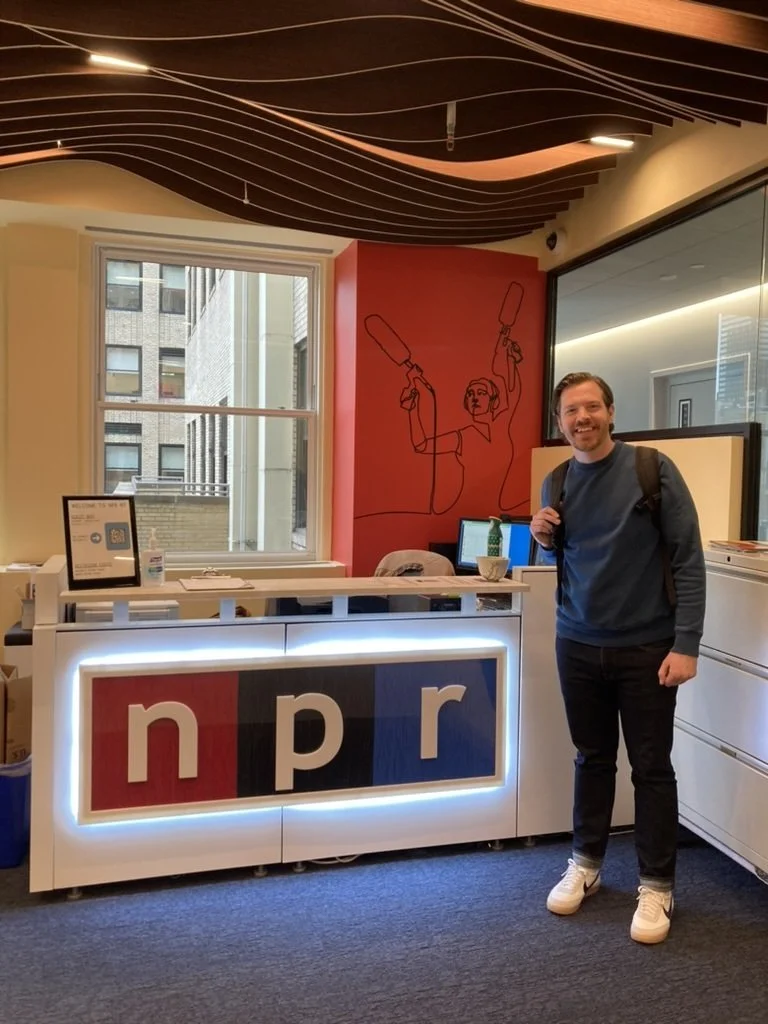Jared Walker On Disrupting Systems And Relieving The Financial Burden of Medical Debt
Jared Walker is the founder of Dollar For, a nonprofit dedicated to eliminating medical debt for patients by making hospital financial assistance known, easy, and fair.
He launched Dollar For in 2015 in Portland, Oregon, inspired by his own family’s struggles with medical debt. What began as a small initiative has grown into a nationwide movement.
Today, Dollar For has helped erase over $83 million in hospital bills, ensuring thousands of patients receive hospital financial assistance they never knew existed. Under Jared’s leadership, the organisation has simplified hospital financial assistance applications, advocated for policy changes, and held hospitals accountable to their legal obligations.
Jared discusses eliminating medical debt through systems change, education, and advocacy, and how policy transparency can transform healthcare for underprivileged communities and empower patients.
Highlights from the interview (listen to the podcast for full details)
[Indio Myles] - To start off, could you share a bit about your background and what led you to working in social impact, nonprofits, and healthcare advocacy?
[Jared Walker] - I didn't really have a background in healthcare or nonprofits. At the time, I was bartending and going through school. When I first dove into this sector, I didn’t know what I was getting myself into.
In 2012, my wife got a phone call telling her that her aunt had passed away from cancer. A couple minutes later, I got a phone call saying my cousin had gone into labour seven weeks premature. The baby needed heart surgery to live. At the same time, same day, same hour, both families were hit with these massive medical emergencies.
The big conversation was about how we were going to pay for it all. That was the catalyst for me diving into this work and wanting to help people in the same situation as we were. In America, when you have a medical emergency, it’s often also a financial emergency. Here, the number one cause of bankruptcy is medical debt. It’s a huge problem, so I wanted to help relieve the financial burden that comes with a medical crisis.
Could you share how Dollar For is tackling the issue of medical debt, while advocating for change in hospital accountability and financial equity in healthcare?
I grew up in Portland, Oregon, and I started Dollar For Portland. It was a local crowdfunding, community-based organisation. Every month we would do small fundraising efforts and collect donations to then pay off medical bills for people in our community.
For years I did that, from 2015 to 2020, until realising there's a law in America that requires hospitals to have programs that eliminate, waive, or reduce hospital bills for people that meet certain income requirements. It's called charity care.
This has been in effect for over a decade and neither I nor the majority of patients had any idea about it. I had been paying medical bills for families that would've been eligible to have their bills written off. Of course, finding that out was frustrating.
That led us towards investigating these policies. Patients will go into hospitals and upon leaving, get this huge bill without any information on the programs hospitals are supposed to have. Unfortunately, the hospitals don't do a great job of telling people about these programs.
We have millions of people on payment plans for medical bills they never actually had to pay in the first place, and that realisation pushed me into the charity care and financial assistance spaces.
It wasn't until 2021 that we had a big moment on social media. I posted a TikTok video telling people about hospital financial assistance and it blew up. We had thousands of people reaching out to us asking for help.
What strategies are you implementing to educate the public about these financial assistance programs that are often hidden?
Our mission was to eliminate as much medical debt as we can for people. Leveraging social media, we shared information on hospital financial assistance and shared patient stories. However, the more medical debt we relieved, the more patients started to trust us and come to us for help. Social media was our main platform in the beginning, but word of mouth quickly spread.
If you're a patient with a ten thousand dollar medical bill and you find an organisation that can take care of it for you, you're probably going to tell other people. Now, we run ads and partner with a lot of organisations.
Anyone in the United States working with low income populations are going to send patients with medical debt to us. We've built a network of partners and social media to raise awareness about financial assistance.
I now feel we're at a point where people are much more aware of charity care and how much of a problem it is that hospitals don’t advertise it. There’s a social pressure on the hospitals. We call it the ‘shame game’, where we've published articles or social media videos on hospitals that are particularly guilty, which has increased thiw pressure.
Now we have state and advocacy groups approaching us about creating better charity care laws. They want to force hospitals to inform and screen patients for these programs. Through our direct patient advocacy, we've created enough momentum that we're seeing real system change.
For listeners who might be unfamiliar, what are some of the requirements to access charity care?
Charity care is a federal law that went into effect with the Affordable Care Act. Most hospitals in America are nonprofit organisations; they're tax exempt. In order for them to keep their tax exempt status, they have to provide community benefit. That was the deal.
Community benefit involves providing charity care, which is writing off or reducing bills for people that meet certain income requirements. Unfortunately, eligibility criteria is not standardised. There are over eight thousand hospitals in America, and they all have different policies.
It’s mostly income based. It might be that if you're a family of four and you make less than seventy-five thousand dollars a year, you could be eligible for these programs. You also usually have to live in the state and sometimes they might say you can't have insurance. It all depends on the hospital; some try to make it really difficult while others are more lenient.
Is it correct to say that these policies are oriented more towards disadvantaged communities and people unable to readily afford healthcare?
Yes, but it's actually more generous than people think. It depends on where you live. For me, on the west coast, most of the hospitals would give me a one hundred percent discount on my bill, if I am at or below three hundred percent of the federal poverty guidelines.
For a family of four, that's a little under $100,000. They can make just under $100,000 and still be eligible for some type of discount, which is pretty good.
In somewhere like rural Alabama, the cost of living is much lower, so it's probably at a lower threshold. Meanwhile, in New York City, the cost of living is extremely high, so hospitals might push the threshold up to $150,000. The variation makes it so much more complicated.
The first big project we took on as an organisation was creating a database of every single hospital in the country and capturing all of their financial assistance policy data.
We have an eligibility screener on our website where people enter their household size, income, and specific hospital, and it will tell them whether or not they’re eligible. Nothing like that existed before.
Originally, if you wanted to find out if you're eligible, you'd have to call the billing office at the hospital and they’d mail you an application in a week. It was overly complex, but now we’ve introduced a system to help simplify it.
What changes do you envision for the future of healthcare in America and how do you hope to go about doing that?
That's a hard question because the US healthcare system is horrifically messy. It's so broken that we can’t take on the entire system in one go, we have to change it piece by tiny piece. I mentioned before that medical debt is the number one cause of bankruptcy in America.
One out of three patients in America neglects care simply because they can't afford it. People don’t go to the hospital to get the help they need because of the cost, whether it be hospital prices, insurance, or one of the million other costs.
Every year, we’re looking at $14 billion in medical debt that should’ve been covered by charity care. While it’s a small part of the problems with healthcare, it has a huge impact. Right now, if you want access to charity care, you would call the hospital and ask for help applying for financial assistance.
Most likely, they’re going to mail you a packet in seven to ten business days, and then you can fax or mail that application back to them. It’s a terrible process, and even then, most hospitals aren't telling people that this program exists.
We advocate for a change in policy, one where hospitals would be required to screen patients for these programs before they're allowed to bill them. Before you can be charged, hospitals will have to screen you and let you know what you're eligible for. We’ve pushed for that change in the state of Oregon, and it’s had a huge impact.
I would like for Dollar For to not exist. Dollar For shouldn't have to be the nation's charity care customer service hotline. Hospitals should be doing this work, and we've stepped in because they're not.
What are some of the barriers Dollar For has encountered in trying to achieve this impact and what were some of the steps taken to overcome those barriers?
The first major barrier was helping patients determine if they're eligible for these programs. Creating the database made it so people could tell almost immediately if they’re eligible. The next piece was helping patients fill out complicated paperwork and sending it to the hospital. We've created technology that mostly automates the process.
The biggest barrier is there's no accountability for hospitals.
There's a law that requires hospitals to offer this service, yet they’ve convinced all of us that it’s the patient's responsibility. The individual has to seek out these programs, fill out all the paperwork, jump through all the hoops, when in fact it is the hospital's responsibility to tell patients and help them through this process.
The barrier is hospitals do a bad job informing people. All of these powerful hospital associations and lobbyists don't want to make this process easy. When helping individual patients, the biggest roadblock is that hospitals can be a headache, and they don't help patients do this.
On the policy side, they're extremely wealthy and powerful players in their communities. If hospitals can squeeze a little bit of money out of their patients instead of giving them charity care, they're going to do that.
To be fair, it’s not all hospitals that do this. Some are really good at supporting their patients. I don't want to badmouth hospitals too much, but they are incentivised to keep quiet on charity care.
What advice would you give to other changemakers with relatively limited resources looking to take on a large system?
This is not a great answer or at least, not a fun one. I would find people that need help and I would help them, and I would do it for free. The only reason we have been able to grow from a one man show in Portland to a national nonprofit, is that we eliminated eighty-three million dollars of medical debt.
If you create value for people in need and you're able to give that for free, word will get out. You will get support and donors will find you. Find people in need and help them. Learn from them. Ask them questions about the barriers they're facing. We've learned so much from the people we serve on how to serve better.
Are there any inspiring projects or initiatives that you've come across recently creating change?
I'm in a couple peer groups and nonprofit accelerator programs with a lot of really cool initiatives. There's one called Closegap. Rachel Miller's leading a great organisation there, where they focus on youth mental health.
There's another called Don't Clock Out. Sarah's leading a fantastic organisation focused on the mental health of healthcare workers. Both in the mental health space, they’re awesome organisations. I highly recommend checking them out.
To finish off, are there any books or resources that you would recommend our audience check out?
In the medical debt space, there's a book called Never Pay the First Bill by Marshall Allen. It's a fantastic book on navigating the US healthcare system. That’s a kind of nerdy option if you really want to get into how to advocate, how to appeal insurance, and really understanding the space. It’s a bit niche, but it's a good one.
Initiatives, Resources and people mentioned on the podcast
Recommended books
Never Pay The First Bill by Marshall Allen








